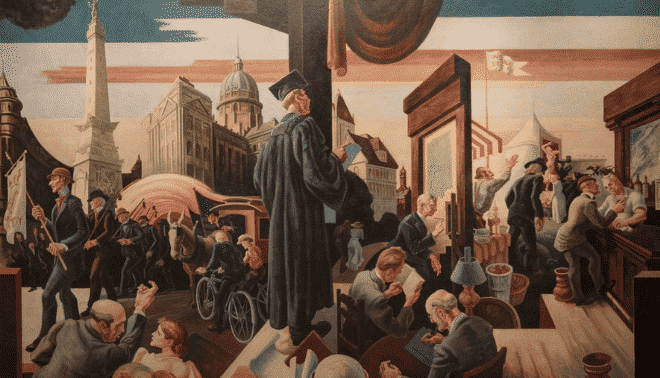Sign up for the Family Tree Newsletter Plus, you’ll receive our 10 Essential Genealogy Research Forms PDF as a special thank you!
Get Your Free Genealogy Forms
"*" indicates required fields
Hats
From 1784 to 1811, Britain levied a tax on men’s hats. It was intended to tax the wealthy more than poorer folk. The former presumably owned more, fancier hats. Hat retailers had to buy a license, and each hat had to have a revenue stamp glued to the inside.
Windows
In 1696 in England, “An Act for Granting to His Majesty Several Rates or Duties Upon Houses for Making Good the Deficiency of the Clipped Money” created a property tax based on the number of windows in a house. The tax was repealed in 1851.
In the United States, the so-called “glass tax” or “window tax” was a nickname for the 1798 US Direct Tax, which included a tax on dwellings valued at more than $100 and on 2 acres or less. It used the number of windows as one measure of values. Pennsylvania direct tax records are on Ancestry.com.
ADVERTISEMENT
Here’s our online genealogy guide to researching your ancestors’ tax records. (Anyone can view a limited number of Premium articles per month. Become a Family Tree Premium subscriber for full access to our entire online library.)
Dice
The Stamp Act of 1765 taxed Britain’s American colonists on lots of things, including dice, playing cards and newspapers. Most of the colonies formally condemned the act, protests turned violent, and several colonies held a Stamp Act Congress. Parliament repealed the act the next year.
Wallpaper
In 1712, during the reign of Queen Anne, England imposed a 1 pence-per-square-yard tax on printed, patterned or painted wallpaper. Decorators would bypass the tax by hanging plain wallpaper, and then having it stenciled by hand. Britain abolished the tax in 1836.
ADVERTISEMENT
Beards
Russian Emperor Peter the Great, hoping to modernize his country to compete with Western powers, introduced a tax on men’s beards in 1698. The facially hirsute had to carry around a token showing they’d paid. Police could forcibly shave those lacking their token. Wealthy bearded folk were taxed more heavily than average townsfolk. Peasants paid a fee when they entered the city, rather than an annual tax.
Peter put his money where his mouth was. At a reception in his honor, he pulled out a razor and shaved his military commander and aides.
Immigration, for people from China
With the Chinese Immigration Act of 1885, passed as construction was winding down on the Canadian Pacific Railway, Canada required immigrants from China to pay $50 to enter the country. Exemptions were made for government representatives, tourists, students, scientists and merchants.
The tax was eliminated in 1923, but only because Chinese immigration was banned altogether. Canada repealed the ban in 1947. (And it wasn’t alone in its discriminatory legislation. The United States passed the Chinese Exclusion Act in 1882, and both New Zealand and Victoria, Australia, taxed Chinese immigrants.)
Salt
Salt was a valuable food preservative, making it a target for taxation—sometimes leading to social upheaval. The Moscow Salt Riot of 1648 protested Russia’s universal salt tax. It disproportionately affected the peasantry, whose diet was mainly salt-preserved fish, causing the Salt Riot. In France, the hated gabelle contributed to the French Revolution. The National Assembly abolished this salt tax in 1790, but Napoleon reinstated it in 1806.
In India, Mahatma Gandhi staged a 24-day Salt March to protest British taxes on salt production, a heavy burden for coastal villages such as Dandi. Read more about salt taxes here.
Tea
American colonists paid a tax on tea starting with the 1767 Townshend Revenue Act, which also taxed glass, lead, oil, paint and paper. Boycotts and protests led Parliament to repeal the Townshend Act taxes, except for tea, in 1770. But this isn’t what sparked the Boston Tea Party in 1773. That was the Tea Act, passed on May 10, 1773. It gave the British East India Co. a monopoly on tea sales in the American colonies, allowing it to undercut both smuggled-in tea and Colonial tea importers. Tea would be cheaper, but Colonists would still have to pay the tax.
Squirrels
This wasn’t a tax paid on squirrels, but with squirrels. Eww. Gray squirrels were once so numerous in Ohio that an 1807 law required taxpayers to turn in to the township clerk a quota of squirrel scalps “in proportion [to] their county levies, provided that it does not exceed 100 or be less than ten” along with their tax payment.
Playing cards
We noted that the Stamp Act included playing cards among its taxed items. More recently, in 1935, the state of Alabama issued a 10-cent tax on packs of playing cards containing 54 or fewer cards. Each package had to have a revenue stamp affixed to it. The tax ended in 2015, under legislation that suspends taxes when the cost of collecting them outweighs the revenue gained.
PS: Those in the United States get a couple of extra days to do taxes this year. The 2018 federal tax filing deadline is Tuesday, April 17. The normal deadline of April 15 falls on a Sunday this year, and Washington DC is celebrating Emancipation Day as a public holiday on Monday, April 16.
ADVERTISEMENT







